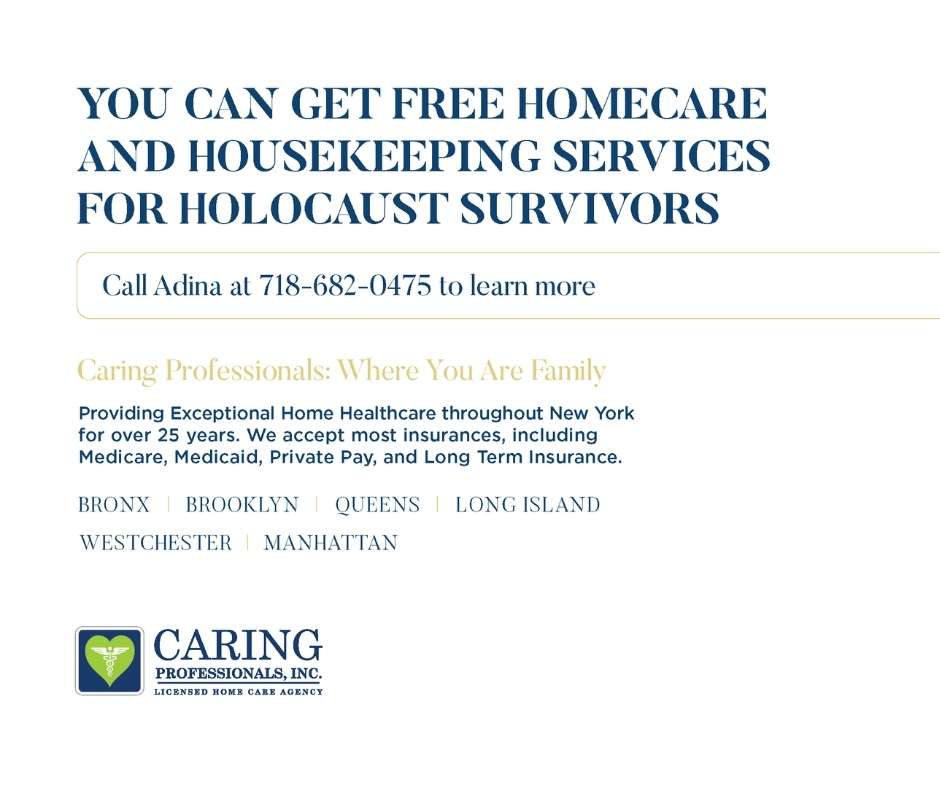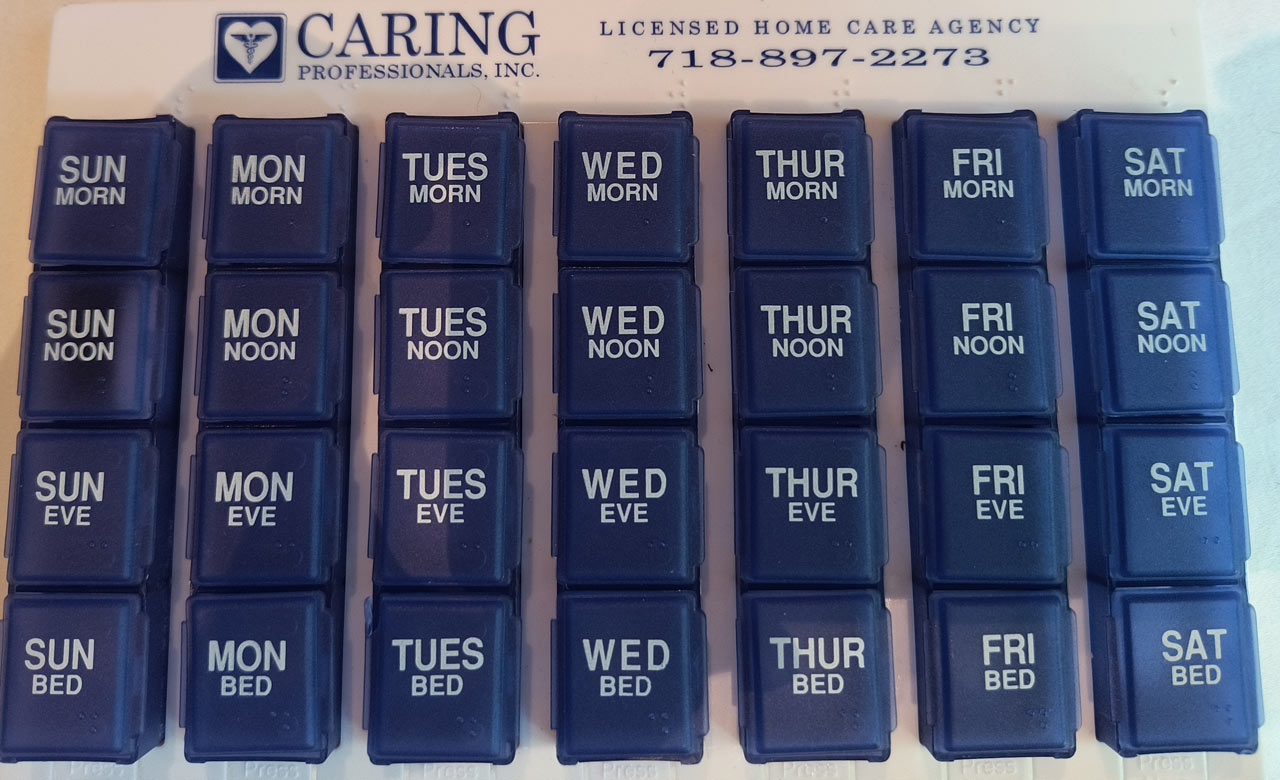Specialty Caring for Holocaust Survivors
What are the supports available to Holocaust Survivors from Caring Professionals?
Since its inception in 1994, Caring Professionals has served Holocaust Survivors through private pay and Medicaid programs. In 2012, we began a dedicated program to serve Jewish and other victims of Nazi persecution in occupied countries during World War II such as Hungary, Greece, Italy, etc. The program’s beginnings were small; we served a handful of clients in Brooklyn. It soon grew to cover hundreds of survivors in Queens, Brooklyn, Manhattan, the Bronx, and Nassau County.
The Holocaust program is run in conjunction with two other groups. Their program is open to all people who fled or suffered Nazi persecution. This means not just concentration camp survivors but people who were forced to relocate to other countries during the war years. This specialty program is funded through a variety of sources coordinated by the Conference on Jewish Material Claims Against Germany.
These two agencies (one services Brooklyn and the other services the other locations) have overall responsibility for these victims and send social workers into their homes to ascertain the changing needs of the individuals. Both agencies offer comprehensive case management including many services (transportation, friendly visiting, food, etc.) to support the elderly.
Caring Professionals role in this relationship with the other two case management agencies for Holocaust Survivors is to provide services to participating clients. A family may choose one of two available services but not both.
One service is home care. Survivors may receive monthly hours of home care once approved by the case management agency. Caring Professionals does not determine the number of hours.
The aides who service these special clients have the same qualifications as the aides in our Medicaid and private pay divisions. This means that the aides have undergone training and hold certificates as home health aides according to the Department of Health regulations. A nurse draws up a customized care plan for each client and supervises the aides to ensure compliance with the care plan. Aides in the Holocaust Survivor program are paid at the same rate as other aides at the agency. Coordinators and schedulers work with the family to ensure timeliness, scheduling needs, and friendly support for all parties.
Instead of home care, a survivor/his family may choose the other option, which is housekeeping services. Caring Professionals will provide companions who take the survivor shopping, to community events, and to medical appointments, and keep them company. Companions can do light housekeeping, food preparation, and home organization.
Additional training is provided to caregivers who service this particularly vulnerable population. As holocaust victims age, there are often visual and sound memories of trauma that come back to them. Special sensitivities are necessary when assisting a person who has gone through violent experiences. Identifying these triggers and how to help a client respond are addressed.
Here are some things we discuss with a caregiver for survivors, whether it is a provider of housekeeping services or home care services.
- If your client refuses to eat or even hoards food, it may because food was rationed and limited during wartime. People often had to steal food to survive.
- If a client refuses to take a bath or a shower, it may be because it brings back memories of when the Nazis forced Jews into “showers” which were really gas chambers. Many family members and friends of the client died in gas chambers.
- A client may not want to go into a freshly cleaned bathroom because of the strong chemical smells. When Jews were taken to concentration camps, there were no bathrooms and strong chemical smells were everywhere.
- If your client refuses to go to the doctor, it may be because doctors in the concentration camps did terrible experiments on Jewish people.
- The client may refuse to use a cane, walker or wheelchair during the war because someone who was ill or disabled during the war was singled out for death.
- Loud noises such as ambulances and police cars may bother your client because during the war loud sirens and horns were used to round up Jews for deportation.
- Some clients will not want to wear stripes and other specific clothing. Jews were forced to wear striped uniforms and yellow Stars of David were used to identify Jews.
- Foreign accents may scare clients. Guards in camps spoke different languages. New accents were scary for inmates.
- Clients may refuse to have a haircut or shave. When Jews arrived in death camps, their heads were shaved to embarrass them.
Caregivers, both housekeepers and aides, are also trained in Jewish cultural and dietary needs. This includes rituals and observance connected with Shabbat and holidays. Preparing the individual and the home for celebrations and solemn days is covered. Additionally, there is ongoing support by a holocaust services specialist who frequently becomes a good friend to the family.
Together with the case management agency and the family members, Caring Professionals’ team work closely to ensure that his or her needs are being met with responsible care, services, and support. It takes empathetic caring and professionalism to fulfill this sacred mission to holocaust survivors. We’ve got what it takes and we are truly dedicated caring professionals.
Call or text Adina at 718-682-0475







